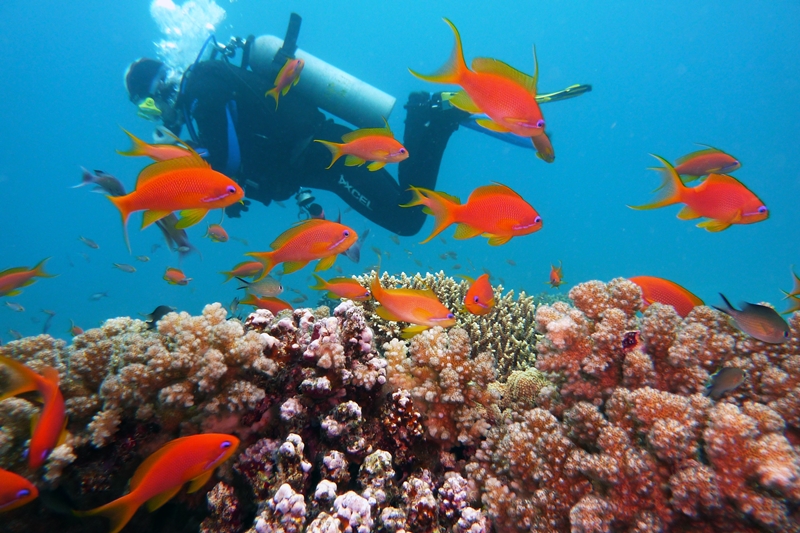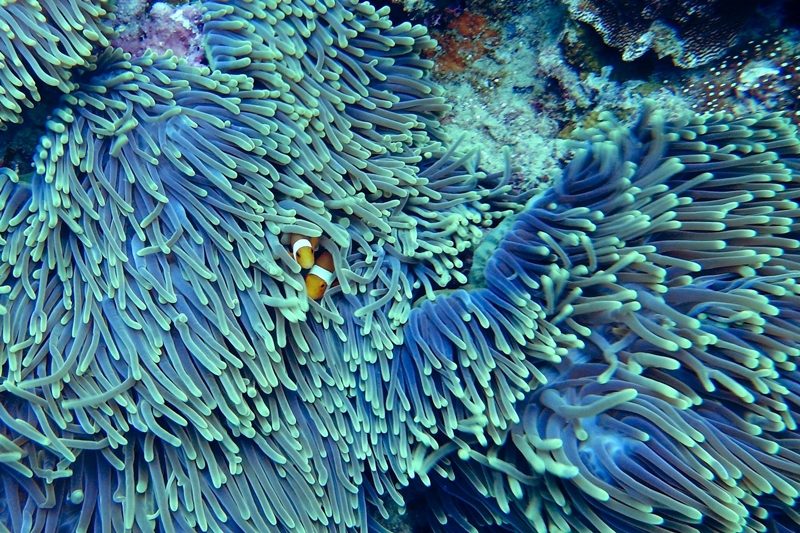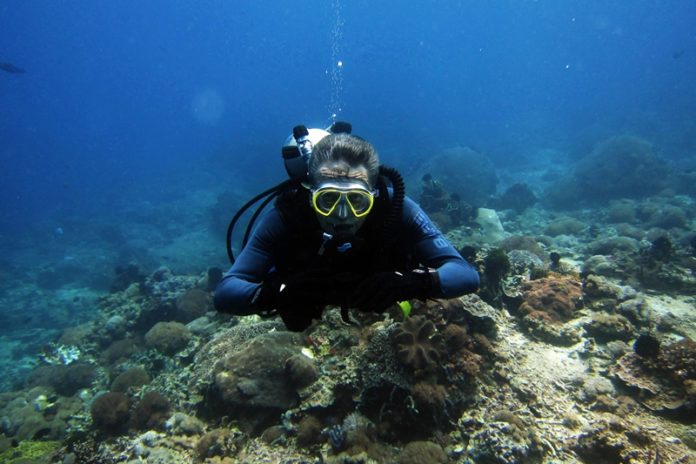As a scuba diving enthusiast, I have always been fascinated by the underwater world and the intricate ecosystem that lies beneath the surface. As luck would have it, my chance to participate in coral propagation came during my divemaster internship in Nusa Lembongan. Not only did I get to witness the incredible beauty of the underwater world every day, but I also had the opportunity to learn about coral propagation and contribute to the preservation of the reef ecosystem. Without hesitation, I dove headfirst into this unique experience, eager to learn, and excited to make a difference.
Nusa Lembongan is a small island southeast of Bali, Indonesia, known for its crystal-clear waters, diverse marine life, and stunning coral reefs. Unfortunately, like many other coral reef ecosystems around the world, the reefs in Nusa Lembongan have been affected by a variety of factors, including climate change, overfishing, and pollution. To combat this, local dive centers and conservation organizations have implemented coral propagation programs to help restore the reefs and promote sustainable diving practices. I was lucky enough to join one of these programs during my divemaster internship in Nusa Lembongan and had an unforgettable experience that opened my eyes to the importance of coral conservation.

The program began with a briefing on coral propagation techniques and the importance of maintaining a healthy and sustainable reef ecosystem. We learned how to properly identify and prepare coral fragments for planting and were given detailed instructions on how to plant them in the reef. In addition to the hands-on training, we had group discussions about the current state of the marine protected area and the importance of conservation efforts. It was inspiring to meet other like-minded individuals who shared my passion for preserving the ocean and its inhabitants.
During our breaks, we swapped stories about our diving experiences and discussed the impact of human activity on coral reefs around the world. It was fascinating to hear about the different initiatives that were being undertaken in other parts of the globe to promote sustainable diving practices and protect coral reefs. As we worked together to propagate the coral, we developed a sense of camaraderie and teamwork that added to the overall experience. The satisfaction of seeing the newly planted coral thrive in their new environment was an incredible feeling.
When we descended into the water, I was struck by the vibrant colors and diversity of the coral reef. It was clear that the reef was teeming with life, from schools of colorful fish to large sea turtles lazily swimming by. Our task was to plant small fragments of coral onto a designated area of the reef. It was a delicate process that required precision and patience, as we had to carefully secure each fragment onto the reef and ensure that it was firmly anchored in place. As we worked, I couldn’t help but feel a sense of awe and responsibility. This was more than just a dive trip; we were actively working to restore the reef and preserve its natural beauty for generations to come.
As we continued to plant the coral fragments, the marine life around us seemed to become more abundant and diverse. At one point, we were lucky enough to witness a manta ray gliding gracefully through the water, its massive wingspan an awe-inspiring sight. And then, just when we thought things couldn’t get any better, we spotted a massive mola mola, also known as an ocean sunfish. The creature’s unique shape and size were breathtaking, and we watched in amazement as it floated by us, seemingly unfazed by our presence.

These moments of wonder and amazement were a stark reminder of the importance of preserving these underwater ecosystems. By participating in coral propagation and promoting sustainable diving practices, we can help ensure that these incredible creatures and habitats continue to thrive for generations to come. As I looked around at my fellow divers, all of us united in our love for the ocean and our commitment to conservation, I felt a sense of camaraderie and purpose that I will never forget.
Throughout the dive, we were accompanied by experienced dive instructors who provided guidance and assistance when needed. They also emphasized the importance of responsible diving practices, such as not touching the coral or disturbing marine life. After several hours of planting coral fragments, we surfaced feeling exhilarated and fulfilled. It was incredible to see the impact that we had made in just a short amount of time, and I felt proud to have contributed to the restoration of the reef.
But the experience didn’t end there. Back on land, we were given a tour of the coral propagation facility and shown how the coral fragments were being nurtured and grown for future planting. The staff at the facility explained the ongoing efforts to restore the reef and the importance of community involvement in preserving the local marine protected area. They also highlighted the role that sustainable tourism and responsible diving practices play in protecting the reef for future generations.
My first experience participating in coral propagation during my divemaster internship Lembongan was a truly unforgettable one. It was a reminder that we all have a responsibility to protect our planet and preserve its natural wonders. If you’re a scuba diving enthusiast looking for a unique and rewarding experience, I highly recommend participating in a coral propagation program in Nusa Lembongan. Not only will you have the opportunity to explore the stunning underwater world, but you’ll also make a meaningful contribution to the preservation of one of the world’s most beautiful coral reef ecosystems.
Overall, participating in coral propagation with guidance from the Lembongan dive center was a humbling and enlightening experience that I will never forget. It gave me a newfound appreciation for the delicate balance of the ocean’s ecosystem and the importance of responsible diving practices. I encourage anyone who has a passion for diving and a desire to make a positive impact on the environment to consider participating in a similar program. Together, we can help protect our planet’s most precious resources for generations to come







